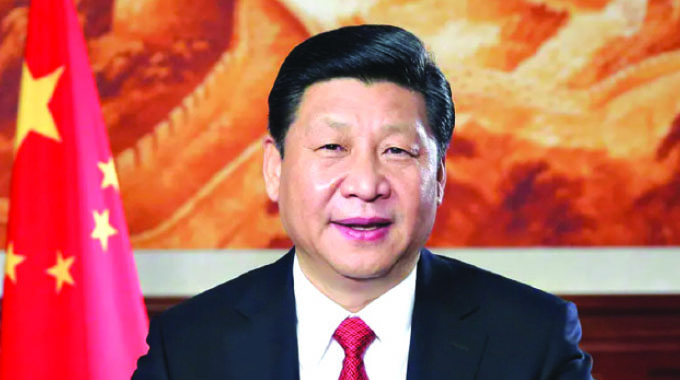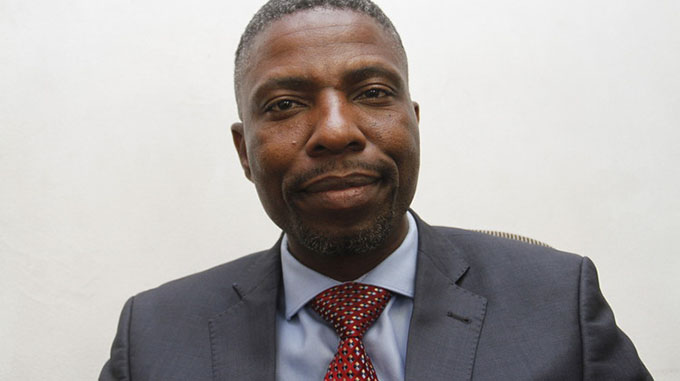Unpacking China’s futuristic vision for the globe

Features Correspondent
There is a lot of conjecture as to what the future holds for the world when China inevitably attains the status of the globe’s most powerful country.
The occasion of the country’s Independence, celebrated on October 1, raises this question once again.
At worst, pessimists fear that China could become the new hegemon that dominates other nations.
At best, it is speculated that China will be a kind of big brother, a beneficent leader, in its desire to be different from previous status quo.
However, the truth is that China will exercise leadership with a difference, anchored on a number of rules and values that will see an international order that better serves humanity for both big and smaller countries.
A world free of racism and where friendship and cooperation among peoples is attainable.
President Xi Jinping has so far most eloquently fleshed out this prospective dispensation, under the rubric of “global shared future” rooted in a multipolar system, and has especially taken to the global stage of the United Nations (including the most recent United Nations General Assembly in 2021) to preach about this.
What constitutes the “Community of Shared Future” — the futuristic vision that will change the course of the world?
President Xi is an ardent proponent of this well-thought concept, which is multi-dimensional and seminal. It is an idea that places cooperation among countries of the world, respect for each other and all-encompassing development.
New model
In a speech at the 70th United Nations General Assembly on September 28, 2015, President Xi explained that it was incumbent upon the world to “build a new model of international relations featuring mutually beneficial cooperation, and create a community of shared future for mankind.”
Several planks undergird this proposition.
Said President Xi: “We should build partnerships in which countries treat each other as equals, engage in extensive consultation and enhance mutual understanding…the future of the world must be shaped by all countries.
“All countries are equal. The large, the strong and the rich should not abuse the small, the weak and the poor.
“The principle of sovereignty is not just embodied in the inviolability of the sovereignty and territorial integrity of all countries and non-interference in the internal affairs of other countries. It is also embodied in the right of all countries to make their own choice of social systems and development paths.”
He also outlined a number of precepts such as commitment to multilateralism and rejection of unilateralism; adoption of a vision of seeking positive outcome for all, as opposed to zero-sum mentality; resolution of disputes through dialogue and consultation rather than confrontation.
Under this philosophy, President Xi envisages a “security environment” underlined by fairness, justice, joint efforts and shared interests.
In a new global dispensation, countries throw away Cold War mentality and its manifestations, and according to President Xi, countries should foster a new vision of common, comprehensive cooperative and sustainable security; foster open, innovative and inclusive and sustainable development that benefits all.
There are a number of other factors that underlie this vision.
In summary, it is a vision that is contrary to the current state of play in global affairs that is characterised by domination, unfairness and unsustainable relations and developments.
There is a need for complete overhaul.
Shared vision in action
The above explanation may sound too utopian. However, China is a doer.
Led by the CPC, China has utilised its status as an independent nation and rising power to implement some of its lofty ideals.
Information available show that over the past 60 years, China has provided assistance to 166 countries and international organisations, dispatched over 600 000 personnel, and announced unconditional debt relief of heavily indebted countries and the least developed countries for seven times.
China has provided medical assistance to 69 countries in Asia, Africa, Latin America and the Caribbean, and Oceania, and has helped more than 120 developing countries implementing the UN Millennium Development Goals.
According to the World Bank, the joint construction of the “Belt and Road” is expected to lift 7,6 million people and 32 million people in relevant countries out of extreme poverty and moderate poverty respectively.
This changing of global dynamics, is thanks to Chinese Independence without which the world would not have experienced a new order take shape.









Comments